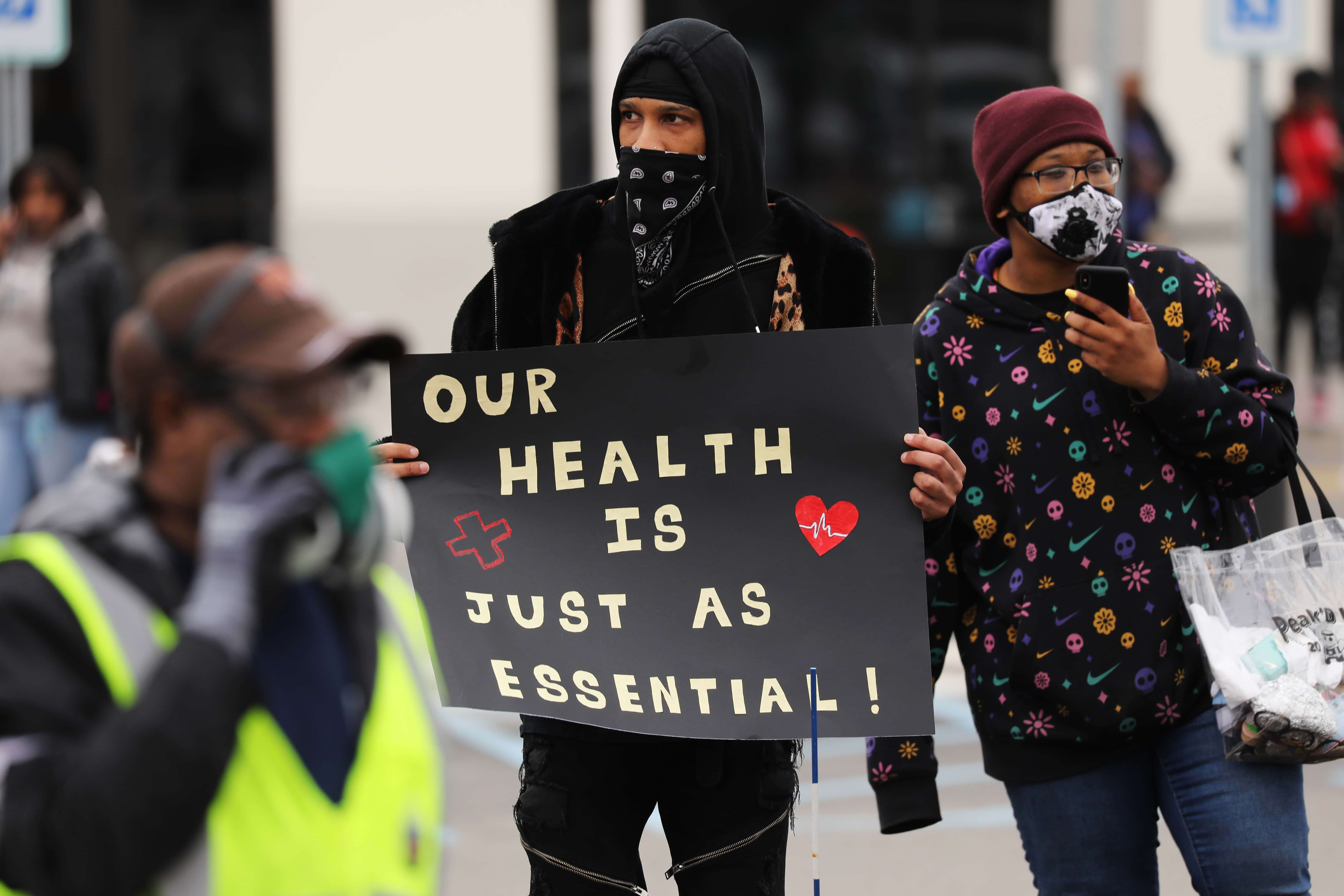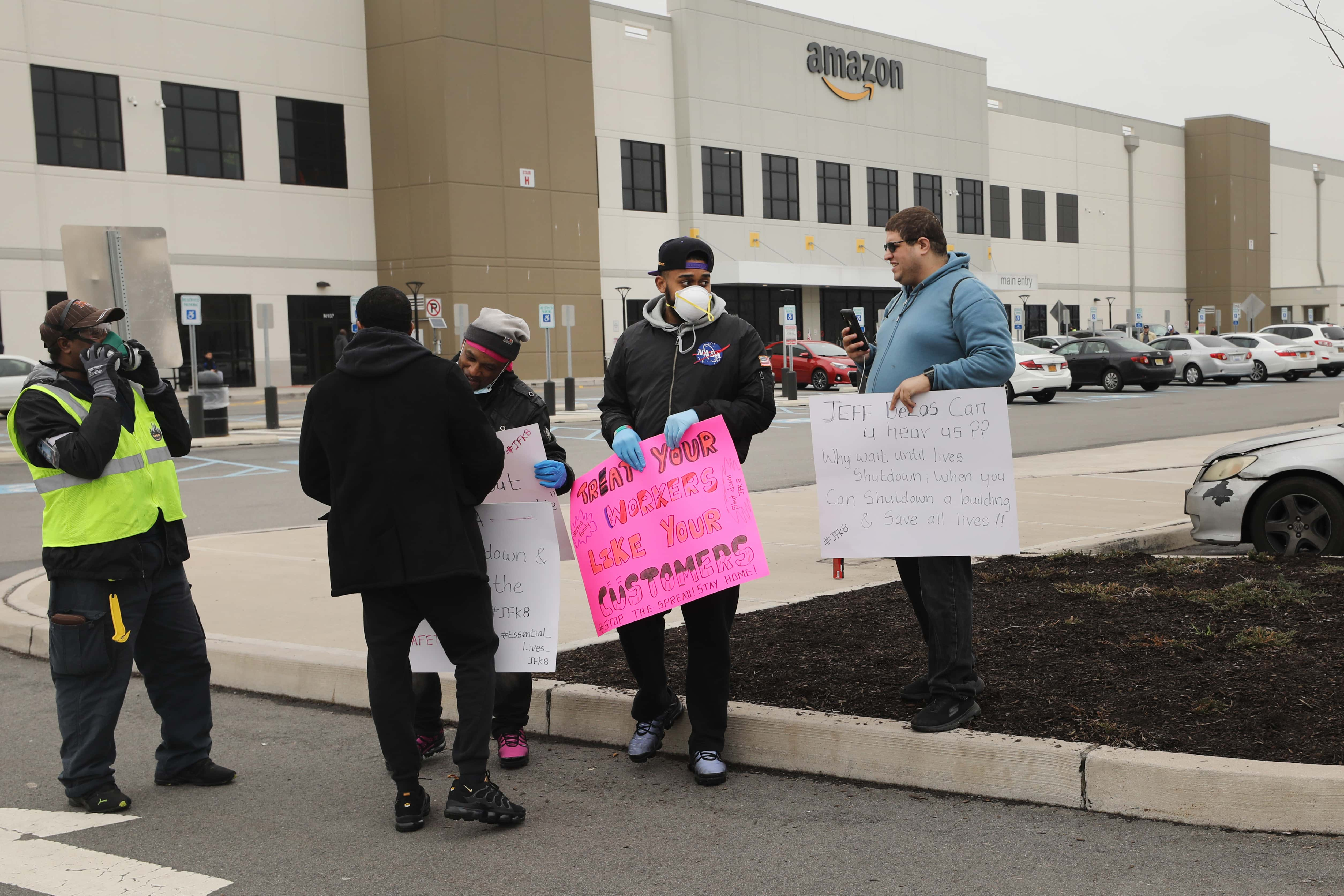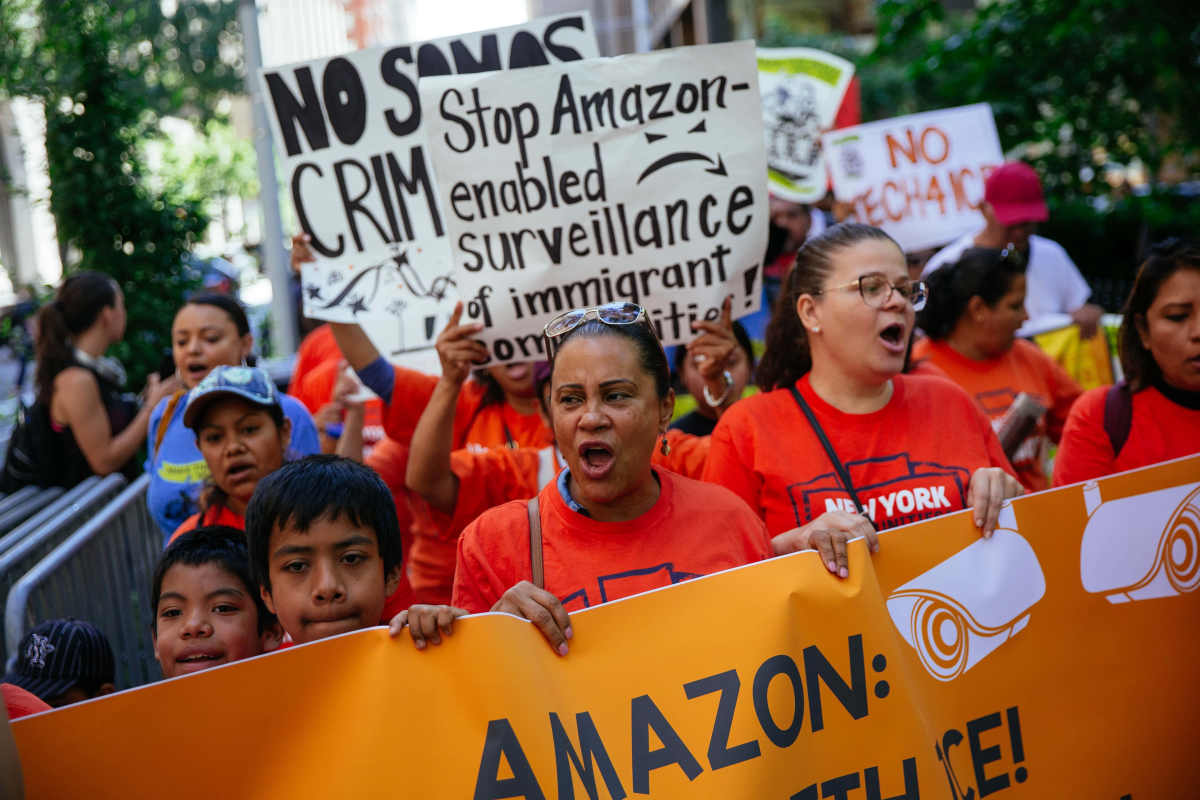Amazon’s chronic woes with workers’ mental health, ruthless work conditions deepen after another employee suicide

Earlier this month, it was reported that an Amazon worker, Pail Vilscek, at the company's facility in North Las Vegas, Nevada, had died by suicide after having appeared to have "fallen or jumped." Amazon's workers were told to keep working for a few hours after the body was discovered and were later sent home with pay. The suicide triggered conversations among employees and former workers of Amazon to speak up about the retail giant's poor working conditions and the mental health struggles its workers face.
Since the onset of the COVID-19 pandemic last year, hundreds of Amazon warehouse employees from at least 50 sites around the country had participated in protesting working conditions during the pandemic, demanding greater pay, access to protective gear, and more generous time-off policies. The company's poor working conditions even prompted New York state lawyer Letitia James to send a letter to the company, saying, "Amazon's health and safety measures taken in response to the COVID-19 pandemic are so inadequate that they may violate several provisions of the Occupational Safety and Health Act."
RELATED ARTICLES
Jeff Bezos adds $24B to his fortune as Amazon workers protest poor work conditions amid pandemic
But Amazon workers' struggles started much earlier than the pandemic. In a March 2019 report from The Daily Beast, reporters got access to records of 189 emergency incidents that occurred at 46 Amazon facilities between December 2013 and December 2018. These calls were made to 911 dispatchers about "men and women on the brink."

Mental health crisis
The publication reported about the different employees who had threatened suicide or hurt themselves, including a pregnant woman in Kentucky and a young man who threatened to "jump from [the] second floor" of the warehouse in Chester, Virginia. Emergency workers were summoned to Amazon warehouses for suicide attempts, suicidal thoughts, and other mental health episodes, according to call logs and reports reviewed by the publication. These calls only covered 17 states and only roughly a quarter of the sorting and fulfillment centers the company has across the country.
One former employee at a warehouse in Lakeland, Florida, Jace Crouch told The Daily Beast, "It's this isolating colony of hell where people having breakdowns is a regular occurrence." Crouch, who had an emotional crisis on the job said that it was "mentally taxing to do the same task super fast for 10-hour shifts, four or five days a week."
Some employees also told the publication that while they struggled with mental health issues before they started working with Amazon, they believed that the company's taxing work environment made them worse. In some cases, after they were put on leave, the workers said they struggled to get the promised compensation, received counseling they found insufficient or unaffordable or were even fired.
Amazon's statement to the publication said that it values the health of its employees and suggested that the number of calls is an “overgeneralization” that “doesn’t take into account the total of our associate population, hours worked or our growing network.”
Workers have often protested in the past, even before the pandemic to fight for fair working conditions. In 2018, Amazon workers protested on the occasion of Amazon Prime Day to ask for better treatment and to draw attention to their working conditions. Workers across the world participated, with many even boycotting the company on its annual shopping event to show support.

Poor working conditions
Following Vilscek's death, Amazon workers spoke to International Amazon Workers Voice (IAWV) about the poor working conditions. Two workers, who wanted to remain anonymous told the publication that Vilscek was "really chatty and friendly," and that he "was also everywhere" doing a variety of tasks, like running the damage department, problem-solving, stowing, and counting. The worker said that he was a "really dependable guy and very kind."
While it is unclear what complex set of issues drove Vilscek to take his own life, many Amazon workers reportedly mentioned the high-stress environment and lack of compassion on the part of management to have played a role in his death. One co-worker told IAWV, "I will say management doesn’t give a damn about mental health or so it seems. We are actively discouraged to interact with our fellow co-workers lest we be written up for ‘time off task.’”
She continued, "I have a history of severe depression and anxiety, along with a big ’ole dose of suicidal thoughts. And I’ve cried at work before, in front of them even, and they don’t care. There is not a single moment where we aren’t treated as numbers.”
Another worker in Las Vegas told IAWV, "Never in my life have I heard of an employer being so unwilling to care for its employees. In my opinion, the poor man who died at LAS7 more than likely had these same issues with his situation. He had no support through his place of work, and what little time off we can take is held against us."
He added, "This event really hit home to me," saying that he deals with severe anxiety, depression, and post-traumatic stress. He also mentioned that Vilscek was allegedly going through a bad divorce. The worker also said, "I am on a short-term disability leave due to my issues, but I was informed by a lead that the time I’m taking off can cause me to be one of the first names on the list when layoffs come around. This gives me more anxiety. It’s a vicious, unrelenting cycle.”

In September 2019, a 48-year-old Amazon worker, Billy Foister, died from a heart attack at work. According to his brother, an Amazon human resources representative, Foister had lain on the floor for 20 minutes before receiving treatment from Amazon's internal safety responders. Shortly after Foister was taken to the hospital, workers were forced to go back to work, with "no time to decompress," as one employee told The Guardian.
On the Dirty Dozen list
Amazon's poor progress with workers' mental health struggles at work and poor working conditions led to the company being placed on the "Dirty Dozen" list by the National Council for Occupational Safety and Health, citing its high incidence of worker suicide attempts, overworked employees peeing in bottles to avoid punishment, and poor treatment of contract and temporary workers, which Amazon relies heavily on for all operations. The company had made the list in 2018 as well and the Council argued that nothing had improved since then. While Amazon was not on the list for 2020, the company made the "Dishonorable Mention" section, citing "six fatalities, hundreds of injuries due to breakneck pace of next-day delivery; at least one dead from COVID-19."
The e-retail giant, whose founder, Jeff Bezos is the second-richest person in the world with an estimated net worth of $182 billion, has a long way to go before workers can feel safe. Khadra Ibrahim, a single mother of two and Somali immigrant in Minneapolis, Minnesota, spoke to Vox about working at Amazon, saying, "Every time I walk through those doors, I am filled with dread that tonight is going to be the night that I get fired."
She continued, "When you take a job at a warehouse, you have to be mentally and physically prepared for a certain kind of work, but I have never felt threatened by a workplace like this before. I want to keep this job to provide for my family, and I am also working as hard as I can, but you can’t live under this type of pressure. The way Amazon pushes people is not moral.”










